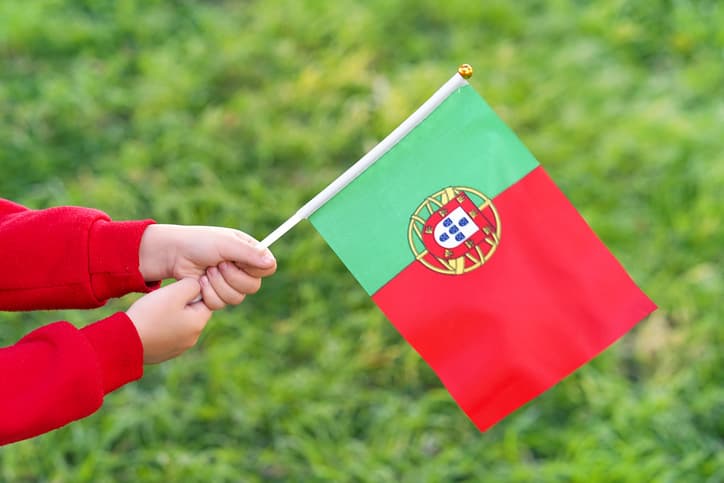x
Our website uses cookies. By continuing to use the site, you agree to our use of these cookies. To learn more about how we use the cookies and how you can manage them, please see our cookies policy.
Portugal’s nationality law offers a unique opportunity for those with Portuguese ancestry or birth ties to the country to claim nationality. If you have Portuguese heritage through parents or grandparents, you may want to strengthen your familial and cultural ties by applying for citizenship. This pathway also provides opportunities for travel, work, and study across the European Union, as well as access to Portugal’s high quality of life and growing economy.
This guide will explore the application process for becoming a Portuguese citizen by descent or birth, and how citizenship lawyers (Advogados) can be beneficial.
Click on the links below to each section:
Discover issues that may arise during the citizenship process in Portugal, and why applicants should seek expert legal advice.
What is required of applicants looking to become a citizen in Portugal?
Discover the step-by-step process for the Portuguese citizenship application by descent or birth.
Browse which documentation is needed for the citizenship application in Portugal.
Read the common queries on applying for Portuguese citizenship by descent or birth.
Applying for Portuguese citizenship through descent or birth can present challenges, particularly for foreign nationals who live outside Portugal. One major challenge, which is also predominately an issue for other pathways such as marriage, is the language barrier.
Although applicants by descent or birth do not need to take a Portuguese language and citizenship test (CIPLE), they still need to communicate with Portuguese authorities, navigate legal and bureaucratic terminology and translate documentation where required.

Collecting the necessary documentation, outlined further in the guide, may also become a significant obstacle. Older records and documents, like grandparents’ birth or marriage certificates, may not be easy to obtain.
These documents may be misplaced, illegible, or otherwise difficult to obtain, particularly when issued in another country or predate modern record-keeping systems.
Giambrone & Partners’ cross-border immigration lawyers can help address these concerns. We specialise in dealing with international matters and can liaise with Portuguese authorities. This ensures the documents are correct and meet legal requirements. This, in turn, reduces the risk of delays or rejections, particularly in light of the most current legal developments. Our legal expertise is invaluable in overcoming the challenges of proving ancestry and demonstrating eligibility.
For more information, browse our services for gaining citizenship in Portugal here.
The country's citizenship laws are inclusive of individuals with direct lineage to Portuguese nationals, regardless of their country of origin. The eligibility criteria, as defined by the Portuguese government, ensure that those with Portuguese parents or grandparents, as well as individuals born in Portugal under specific conditions, can claim citizenship.
To qualify for Portuguese citizenship by descent, you must meet at least one of the following conditions:
It is important to ensure that all claims are supported by documentary evidence and meet the residency or integration requirements where applicable.
The application process for Portuguese citizenship depends on your relationship to your Portuguese ancestor or your circumstances of birth. If you are the child of a Portuguese citizen, you automatically qualify for citizenship and can register this status at any time through Portugal’s Civil Registry.
For those who need to apply, this can be done at several official locations:
Unlike other pathways to Portuguese citizenship, such as naturalisation, the application process for citizenship by descent or birth involves minimal fees. If you are claiming citizenship through descent, the application is free. However, if you are applying based on being born in Portugal, the process incurs an application fee of €250.
Read more about the application process for becoming a Portuguese citizen, and the benefits, here.
Similar to other pathways, you must acquire and submit relevant documentation that supports your claim to Portuguese citizenship. For citizenship by descent, the necessary documents typically include:
Gathering these documents can be complex, especially when dealing with older or foreign language records.
Giambrone & Partners is an international law firm specialising in cross-border matters, including gaining citizenship in countries like Spain, Italy and Portugal. Our expert immigration lawyers (Advogados) will guide you through the process of gaining Portuguese citizenship, assessing your validity, and ensuring your application will not be rejected due to an avoidable error.
Contact the Giambrone & Partners’ immigration lawyers for more information on gaining citizenship in Portugal and to request a callback with our immigration lawyers.
Applying for Portuguese citizenship by descent is based on your familial ties to a Portuguese national, such as a parent or grandparent, and is a much simpler process.
In contrast, naturalisation and the Golden Visa programme require you to fulfil other criteria, such as residing in Portugal for a significant period (generally five years), demonstrating integration into Portuguese society, and passing a Portuguese language test.
Processing times can vary depending on the complexity of your case and the workload of the relevant authorities. Applications by descent are typically processed more quickly than naturalisation, but preparing for several months of processing is advisable.
Engaging an experienced citizenship lawyer can expedite the procedure by ensuring your application is complete and error-free.
Read our guide on how long the citizenship process takes in Portugal for more information.